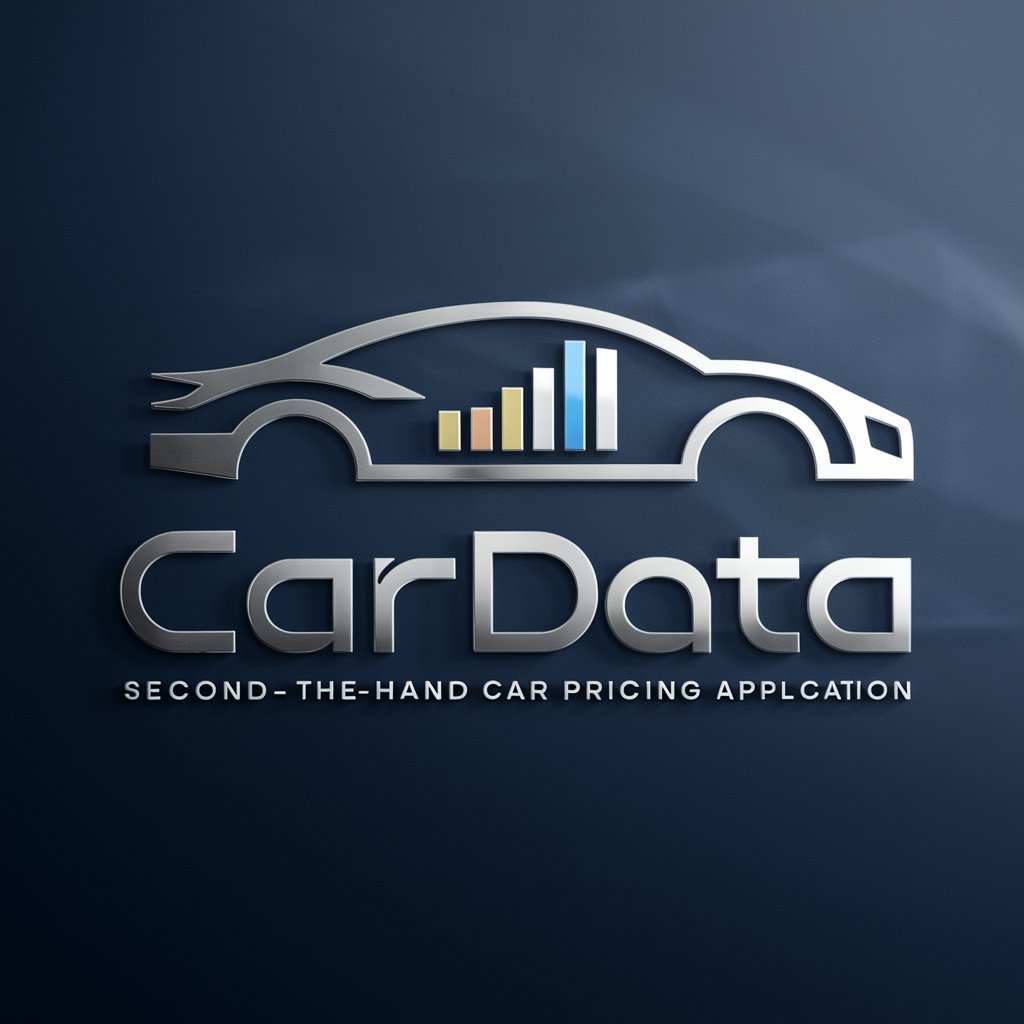
CarData - Second-hand Car Valuation

Merhaba! İkinci el araç fiyatlandırma için buradayım.
Empowering vehicle valuation with AI
Provide the year and brand of the car you want to evaluate.
Select the model and variant of your car for pricing details.
Enter the car's mileage and any damage amount for accurate valuation.
Upload the car registration document for a detailed price estimation.
Get Embed Code
Introduction to CarData
CarData is designed as a comprehensive tool aimed at providing accurate and up-to-date information on second-hand vehicle pricing. Its primary purpose is to assist users in determining the value of used cars based on various parameters such as model, year, mileage, damage amount, and more. CarData leverages a sophisticated API that accesses a vast database of vehicle information, allowing for precise valuation. For example, if a user is considering selling their 2015 Ford Focus with 50,000 km and minor bumper damage, CarData can provide an estimated price range for this specific vehicle condition and market demand. Powered by ChatGPT-4o。

Main Functions of CarData
Yearly Vehicle Identification
Example
Identifying vehicles available in the market by year.
Scenario
A user is looking for the price range of vehicles from 2018 to get an idea of what models fall within their budget.
Model-Based Pricing
Example
Providing price estimates based on specific car models and their conditions.
Scenario
Determining the price range of a Volkswagen Golf with 80,000 km on the odometer and no significant damage.
Damage Evaluation
Example
Adjusting vehicle valuation based on reported damages.
Scenario
A user wants to know how much the value of their car decreases with a scratched door and a dented rear bumper.
License Plate Image Analysis
Example
Extracting vehicle details from a license plate image for valuation.
Scenario
When a user uploads an image of their car's license plate, CarData extracts the necessary information to provide a valuation without the need for manual input.
Ideal Users of CarData Services
Individual Sellers and Buyers
People looking to buy or sell a used car can use CarData to get a fair market value, ensuring they make informed decisions.
Dealerships
Car dealers can utilize CarData to evaluate trade-ins accurately and price their inventory competitively.
Insurance Companies
Insurance firms might use CarData to assess vehicle values for claims processing and policy issuance more accurately.
Market Analysts
Automotive market analysts can use CarData for data on pricing trends and market demand to inform their research.

How to Use CarData
Start Your Journey
Begin by exploring yeschat.ai for a trial that requires no signup or ChatGPT Plus subscription.
Select Vehicle Information
Input specific details about your vehicle, including make, model, year, and variant, if known.
Provide Additional Details
Enter further information such as mileage, condition, and any damages to refine the valuation.
Submit for Evaluation
Once all information is provided, submit the details to receive an estimated market value for your vehicle.
Review Results
Carefully review the provided valuation range and use it as a guide for buying, selling, or insurance purposes.
Try other advanced and practical GPTs
心理と頭脳の哲学者
Decipher emotions with AI-powered analysis

empress.eco
Empower creativity with AI magic

Franz Enzenhofer: Was it a G. Search Update?
Uncover the impact of Google Updates

AI Market Researcher
Empowering Investments with AI Insights

Aprimorador de Prompts 🚀🚀 - By kadubruns
Elevate Your Prompts with AI Creativity

Social Ads Pro
Elevate Your Ads with AI

Experienced consultant - TW3 Partners
AI-powered strategic business insights

DeFi Assistant
Empowering DeFi Navigation with AI

Business Model Canvas Guide
Revolutionizing Business Planning with AI

Baby Name Hero
Discover the perfect name with AI

天思引
Unleash Creativity, Solve Complex Challenges

TereraAI Learn Language
Empowering Language Mastery with AI

Frequently Asked Questions About CarData
What is CarData?
CarData is an AI-powered tool that provides second-hand vehicle valuation, helping users to find the market value of cars based on various parameters such as model, year, mileage, and condition.
How accurate is CarData's valuation?
While CarData strives for accuracy by using up-to-date market data and analytics, the final value can vary depending on the vehicle's condition, market trends, and other factors not captured in the initial assessment.
Can CarData evaluate vehicles with damage?
Yes, CarData can provide an estimated value for vehicles with damage. Users need to input the extent of the damage for a more accurate valuation.
Is CarData available for all car brands?
CarData covers a wide range of car brands and models. However, availability might vary based on market presence and data availability for certain lesser-known or very new brands.
How can I use CarData for the best results?
For optimal results, provide detailed and accurate information about your vehicle. Check for any updates in the valuation tool and consider consulting with a professional for a physical inspection if necessary.





